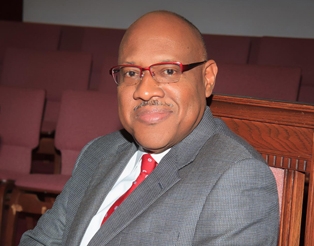Commentary on Matthew 10:24-39
Jesus’ language is terse and provocative. It is almost the equivalent of our modern day “Now hear this!” He states emphatically and upfront that he did not come to this earth to bring a political rebellion against Rome, or to settle inner individual struggles in people. His work is at once deeper and broader than those two extremes. “I have not come to bring peace, but a sword,” says Jesus (Matthew 10:34). This applies to the powers of the world as well as the powers of the inner heart. God’s inbreaking activity attested by the presence of Jesus on earth, will not usher in a messianic era of peace when the hearts of parents will be turned to their children and the hearts of children will be turned to their parents.1
Jesus boldly proclaims that with his coming the ultimate age of peace has not yet dawned, but instead the last struggle for the salvation of humankind has broken out. This is not a time of peace, but rather a time of confrontation; a time of dispeace, in other words, dissention, strife, and turmoil.2 The beginning of the end is here. His coming will bring about actual altercations and conflicts within the closest circles of the family. Why? Because the coming of Jesus and his message of the kingdom of God are at odds with familial societal ties, and takes priority and precedence over all such loyalties and devotions.3 No human relationship must be allowed to come between the follower and Jesus Christ, not even the parent-child relationship, the love of son and daughter or father and mother.
It is quite likely that the community for which Matthew wrote had experienced such family divisions and that some followers had even been turned out of their families. His coming calls forth decisions every day of our lives as to whom we will serve. A person’s family could well become the enemy if familial love seeks to replace the love of Christ. Even the disciple who wished to go and bury his father is told to let the dead bury their own dead4 (Matthew 8:21). Following Jesus takes priority even over the filial responsibility of burying one’s father. Inherent in the command to follow him is a requirement of unwavering loyalty. The claims of the gospel can and will split families.
His coming among us will not be viewed as an occasion for celebration by everyone. It is not a time for party hats and gift bags. Not everyone will be glad to see Jesus or to have his presence as the center point in their lives. His coming initially stokes division. Peace? Not yet! Quite the contrary, it will be a time of heightened tensions and disagreements when people will have to declare whether they are for or against Jesus. These deep divisions and fissures will be felt most intently in one’s own household. Will all households be glad to see Jesus? Not according to scripture. When the time came for the baby Jesus to be presented in the temple according to the law of Moses, Simeon blessed him and said, “This child is destined for the falling and rising of many in Israel, and to be a sign that will be opposed” (Luke 2:34). His very presence will be opposed by some, and cause others to stumble, and this sometimes in the same family.
America is rife with divisions—political, economic, social, racial, ethnic and gender included. The fabric of our society is torn asunder. Most certainly in our communities but even in our families. Some families can no longer celebrate Thanksgiving and Christmas holidays owing to divisions that rend them apart. Some divisions come as a result of family members who refuse to own Jesus as Lord in any sense of the word. Some come because other members hear his words differently and thus march to the beat of a different drummer. Oftentimes young people clash with parents on matters of faith when their generation sees things differently from their parents: kindness to strangers, duty and responsibility to others, the fair and just treatment of all God’s people, a healthy concern for the environment, or a more progressive understanding around issues of human sexuality. Trying to heed the commands of Christ and live faithfully around these issues often causes tensions and uncertainties among loved ones.
Some think the divisions are little more than a family squabble, while others see in them a struggle against the cosmic powers of this present darkness (Ephesians 6:12). His coming challenges us to put him first and seek his will above and beyond all familial ties and claims of loyalty in every sphere and every arena of our current existence. We are engaged in a daily struggle for God’s rule and God’s way on this earth. The Christ whom God has sent among us does not come to usher in an era of peace but rather an era of engagement and challenge where convictions will be tested and decisions made about the things that matter in this life even as creation, along with humanity, groans for redemption. The struggle is not an easy burden to bear, so every day we must find ourselves praying earnestly to God: Dear Lord, strengthen us where we are weak, build us up where we are torn down, and prop us up on every leaning side.
Notes
1.Davies, W. and Allison, D., A Critical and Exegetical Commentary on the Gospel According to Saint Matthew: International Critical Commentary on the Holy Scriptures of the Old and New Testaments, Vol 2. (Edinburgh: T&T Clark, 1991) 216-19.
2.Davies and Allison, 216-19.
3. Luz, Ulrich. Matthew 8-20: Hermeneia (Minneapolis: Fortress Press, 2001)112
4. Mullins, Michael. Gospel of Matthew (Columbia Books: 2007) 273


June 25, 2023